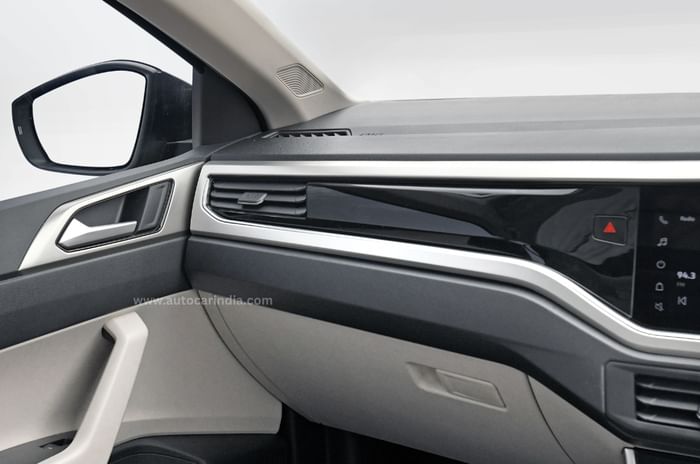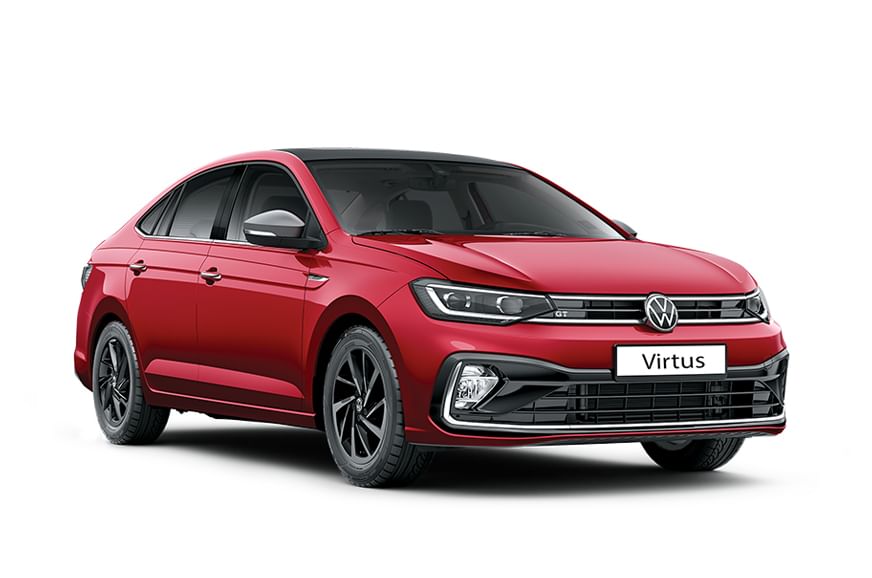Buying a used Volkswagen Virtus: what to look out for
The stylish Virtus is one of the few midsize sedans on sale. We tell you why you should consider getting a used one.
Published On Jul 13, 2024 07:30:00 AM
18,269 Views
Follow us onGOOD FOR: Spacious cabin, boot; Fun to drive
LOOK OUT FOR: AC cooling; Interior rattles
The Virtus is VW’s replacement for the Vento and one of the few midsize sedans still on sale. If you’re looking for a spacious, fun-to-drive sedan, this should be on your shortlist. Here’s what you need to know if you’re looking to buy one that’s used.
Volkswagen Virtus powertrain
The Virtus range starts with a 1.0-litre TSI three-cylinder turbo-petrol engine paired with a 6-speed manual or a 6-speed torque converter automatic. This engine puts out 115hp and 178Nm. There’s also a more powerful 150hp, 250Nm, 1.5-litre TSI four-cylinder turbo-petrol, which was initially available only with a 7-speed dual-clutch automatic transmission; VW introduced a 6-speed manual option last year.
.jpg?w=700&c=0)
As for fuel efficiency, we haven’t subjected the Virtus to our real-world tests, but we have tested its mechanically identical Skoda sibling, the Slavia. The 1.0 TSI MT returned 11.8kpl in the city and 14.2kpl on the highway, while the AT did 10.5kpl and 13.4kpl, respectively. As for the 1.5 TSI DSG, it returned 8.4kpl in the city and 14.2kpl on the highway, while the manual did 8.8kpl and 14.9kpl, respectively. The 1.5 features fuel-saving cylinder deactivation technology, which aids efficiency on the highway. You can expect similar efficiency in the Virtus, too.
The enthusiasts’ choice of engine will be the 1.5 TSI manual for its performance. The DSG will appeal to those who want added convenience without having to sacrifice fuel efficiency too much. However, the 1.0 TSI will do just fine for most people. It’s also quite punchy and comes at a wallet-friendly price. Opt for the smooth 6-speed automatic if the majority of your running is in the city; otherwise, you can save the extra cash and get the manual.
Volkswagen Virtus trims and features
The Virtus is available in four distinct trims: Comfortline, Highline, Topline and GT Plus, the last of which is reserved for the 1.5 TSI versions. While the first three trims get beige and black interiors, the GT Plus has red stitching on the seats, red detailing on the dash, aluminium pedals and blacked-out alloys.
Along the way, VW also launched special editions, such as the Sound Edition and the GT Edge.
.jpg?w=700&c=0)
In terms of features, top-spec versions get a 10-inch touchscreen, wireless Android Auto and Apple CarPlay, an 8.0-inch instrument cluster, wireless phone charging, connected car tech, ventilated seats, a sunroof, auto LED headlamps and auto wipers. On the safety front, higher variants get six airbags, hill-hold control, ESC and a tyre pressure monitor. The car also scored a 5-star safety rating at Global NCAP. The Virtus packs a 521-litre boot and a 60:40 split rear seat. Ground clearance of 179mm is right up there in SUV territory, but the car’s jacked-up stance will not appeal to some.
Moving on to which variant to buy, the mid-spec Highline represents good value with the 10-inch touchscreen, rear camera, and more.
Volkswagen Virtus maintainence
As for aftersales, VW service centres are quite widespread. Do note that some parts of the 1.5 are expensive to replace. But what’s nice is that it comes with a standard warranty of 4 years/1,00,000km that can be extended up to 7 years and 1,50,000km. So, the car you buy will still be covered under warranty.
What to look out for in a used Volkswagen Virtus?
AC cooling
.jpg?w=700&c=0)
One of the most common complaints of Virtus owners is the poor performance of the AC system. Volkswagen acknowledged the issue and rolled out a technical update for all existing Virtus owners, which was carried out free of charge. Before buying, ensure the AC cools the cabin quickly and effectively.
Interior rattles

Many owners have complained about various rattles in the interior, mainly from behind the dashboard. Take a test drive, cross through a rough patch, and listen for any rattling sounds from the dash or door cards.
Also worth knowing
If you’re going for the 1.5 TSI DSG powertrain, it’s worth checking the health of the dual-clutch gearbox. On a test drive, notice if the gearbox is jerky, especially while downshifting, as this could be a sign of trouble.
Second hand Volkswagen Virtus price and resale value
Look to spend anywhere between Rs 10 lakh and 15 lakh on a second-hand Virtus: 1.0 TSI MT at the lower end and 1.5 TSI DSG at the top end. Spending more than Rs 15 lakh doesn’t make sense as you’d be better off buying a brand-new car. There are plenty of examples in the market, and the demand isn’t much. Therefore, you can negotiate the price down.
| Volkswagen Virtus factfile | |
|---|---|
| Years produced | 2022–present |
| Price when new | From Rs 11.21 lakh (ex-showroom, India) |
| Engine | 3 cyl, 999cc, turbo petrol / 4 cyl, 1498cc, turbo petrol |
| Power | 115/150hp |
| Torque | 178/250Nm |
| Ground clearance | 179mm |
| Boot space | 521 litres |
Also see:
Buying a used Toyota Urban Cruiser: what to look out for
Buying a used Skoda Kushaq: what to look out for
Copyright (c) Autocar India. All rights reserved.







Comments
Member Login
Personal Details
No comments yet. Be the first to comment.